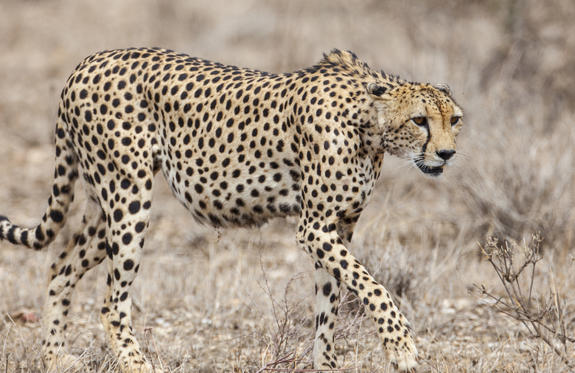
Situated in Central Namibia, the cosmopolitan city of Windhoek serves as the capital of the country. It is home to an international airport and a plethora of restaurants, shops, entertainment venues and accommodation options. The city is clean, safe and well-organised, with a colonial legacy that is reflected in its many German eateries and shops, and the widespread use of the German language. Windhoek has an interesting mix of historical architecture and modern buildings, many of which are worth a look, including the Alte Feste an old fort, the 1896 Christuskirche Christ Church, and the more contemporary Supreme Court.

Located just south of the boundary of Etosha National Park in northwestern Namibia, Etosha South makes up the southern region of this wild paradise. The area is comprised of a collection of world class private game reserves. The national park can be accessed via the southern entrance at Andersson’s Gate. Visitors can catch a glimpse of a variety of wildlife including: lion, giraffe, elephant, white and black rhino, and a multitude of plains game. Popular activities include: enjoying an open 4x4 safari with an expert guide, half day or full day drives with the option of a picnic lunch with wine on the full day game drive.

Located in Northwestern Namibia, Etosha East is a protected sanctuary in the eastern part of the world-renowned Etosha National Park, known as one of the most accessible game reserves in Southern Africa. Etosha East boasts vast open plains scattered with semi-arid savannah grasslands dotted with watering holes and secluded bush camps. An impressive 5000-square-kilometre Etosha salt pan makes up a large area of the eastern side of the park and can even be seen from space. This remote area teems with abundant wildlife such as lions, elephants, black rhinos and giraffes, as well as a variety of birdlife featuring flamingos, ostriches, eagles, hornbills, and owls.

Surrounded by Botswana, Angola and Namibia. Caprivi West forms part of the Caprivi strip that protrudes from the northeastern corner of Namibia. Acquired by the then German South West Africa in 1890, to provide access to the Zambezi River, Caprivi has been used as a point of politico-strategic military importance throughout history. Alongside a rich historical significance, Caprivi offers both a wealth of natural resources and serves as a haven for an abundance of wildlife, including the critically endangered African wild dog. The stips' vast and flourishing natural landscapes make it a popular corridor for African elephant moving from Botswana and Namibia into Angola, Zambia and Zimbabwe. In contrast, its lush, swampy terrains make it the only place in Namibia where one can spot the majestic Nile crocodile and the mighty hippo. Caprivi is a paradise for adventure seekers and nature lovers with free-roaming wildlife and postcard-perfect areas. Activities including game drives, walking safaris, canoeing and fishing on its serene waterways are plentiful. Birdwatchers will be overjoyed as they keep an eye out for the 400 bird species that soar above.

Situated on the northern edges of Namibia, East Caprivi or Itenge is situated in the corner of the Namibian panhandle known as the Caprivi Strip. This off-the-beaten-track destination is made up of vast floodplains, sparkling lakes and lush swamplands dotted with diverse wildlife and an array of bird species. Caprivi East is mostly river country, bounded by the Kwando, Zambezi, Linyanti, and Chobe rivers. The best time to spot a variety of game is the dry winter months of June to October when visitors can spot elephants, buffalo, hippo, zebra, kudu and impala, as well as crocodile, baboon and warthog. Caprivi East is an excellent destination for bird lovers to spot plovers, egrets, herons, and cranes.
The Chobe River forms the northern boundary of the Chobe National Park which is renowned for its diverse and abundant game viewing opportunities. This section of the park is best known for its dense concentration of wildlife, including elephant and hippo populations, but the waters attract all manner of game including large herds of buffalo and the lions that prey on them - a visit to the Chobe River Front guarantees close encounters with an array of African wildlife. Visitors can look forward to a range of exciting activities such as 4WD along the banks; motorboat cruises; and rare birdlife spotting. For a unique, luxury safari experience, hire a houseboat.






